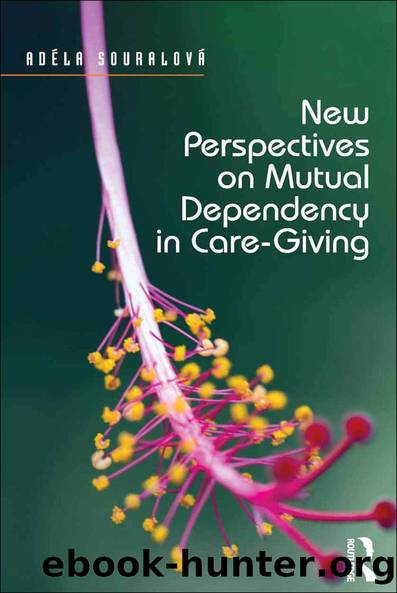New Perspectives on Mutual Dependency in Care-Giving by Adéla Souralová

Author:Adéla Souralová [Souralová, Adéla]
Language: eng
Format: epub
Tags: Social Science, Social Work, Sociology, Marriage & Family
ISBN: 9781317088172
Google: 2J61CwAAQBAJ
Publisher: Routledge
Published: 2016-03-09T02:53:21+00:00
Parentsâ philosophy of upbringing and the children as teachers
Besides reporting that they were lucky that their parents spent more time with them compared to other Vietnamese parents, the children also reported another side of âluckiness.â The children described how lucky they were that their parents were ânot so conservative, and quite open to the European lifestyle.â What does this mean exactly? The fact that the children I interviewed were between the ages of 16â25 years has impacted on how they talked about childrearing, and what aspects of their own upbringing they articulated as important. Very often it was the issue of the teenage lifeâsuch as their love lifeâwhich was most important for these children, and in which they demanded liberties that most Vietnamese parents usually refuse to grant their children. Many interviewees recalled how they used to be angry with their parents for not letting them to go to the pub with their schoolmates or friends. âWhile my Czech friends could be at the pub till midnight, I had to be home in the evening,â was frequently repeated in the interviews. The children described their parents as too strict and conservativeâfor example when it came to their childrenâs partner/love life. The children I interviewed often described that their parents as being against unmarried cohabitation and dating at an early age.
When recollecting the parentsâ attitudes towards her and her upbringing, Tuyet told a story about how she quarreled with her father about who she was and where she belonged. âI said in front of my parents that I am Czech and my dad got really angry with me,â as Tuyet described an incident that happened when she was around 15 years old. âAnd my dad began explaining to me that I am not Czech, I cannot be Czech because I have Vietnamese parents so I am Vietnamese.â Recalling this talk, Tuyet started explaining her influence on her parents which helped them to overcome the distance between them. She described to me how her father could not understand her, and she was forced to explain to him that she was brought up in Europe and that her âmentalityâ (to use her word) was European. âIt was hard, but I educated my parents. Now my parents understand me because I educated them.â Tuyet offered a couple of examples, including her parentsâ openness to her love life, to prove the results of her teaching. Such teaching meant the slight shift in her parentsâ mentalityâthe shift from conservative Asian attitudes to more lenient, European ones.
Download
This site does not store any files on its server. We only index and link to content provided by other sites. Please contact the content providers to delete copyright contents if any and email us, we'll remove relevant links or contents immediately.
Nudge - Improving Decisions about Health, Wealth, and Happiness by Thaler Sunstein(7690)
The Fire Next Time by James Baldwin(5431)
iGen by Jean M. Twenge(5408)
Adulting by Kelly Williams Brown(4565)
The Sports Rules Book by Human Kinetics(4379)
The Hacking of the American Mind by Robert H. Lustig(4375)
The Ethical Slut by Janet W. Hardy(4242)
Captivate by Vanessa Van Edwards(3838)
Mummy Knew by Lisa James(3686)
In a Sunburned Country by Bill Bryson(3536)
The Worm at the Core by Sheldon Solomon(3485)
Ants Among Elephants by Sujatha Gidla(3460)
The 48 laws of power by Robert Greene & Joost Elffers(3243)
Suicide: A Study in Sociology by Emile Durkheim(3017)
The Slow Fix: Solve Problems, Work Smarter, and Live Better In a World Addicted to Speed by Carl Honore(3007)
The Tipping Point by Malcolm Gladwell(2914)
Humans of New York by Brandon Stanton(2868)
Handbook of Forensic Sociology and Psychology by Stephen J. Morewitz & Mark L. Goldstein(2692)
The Happy Hooker by Xaviera Hollander(2686)
